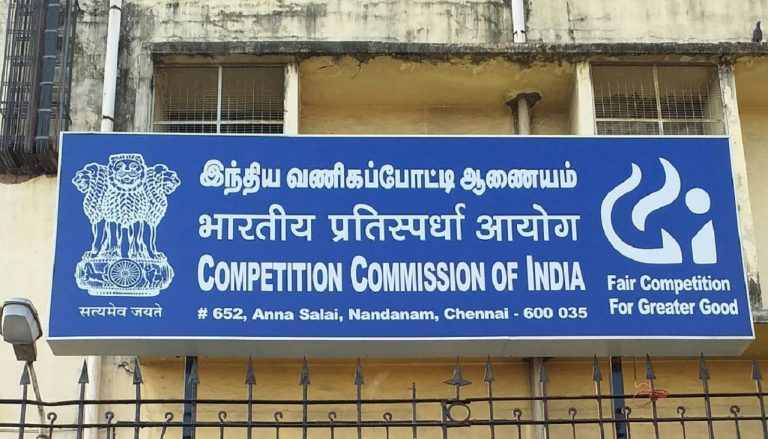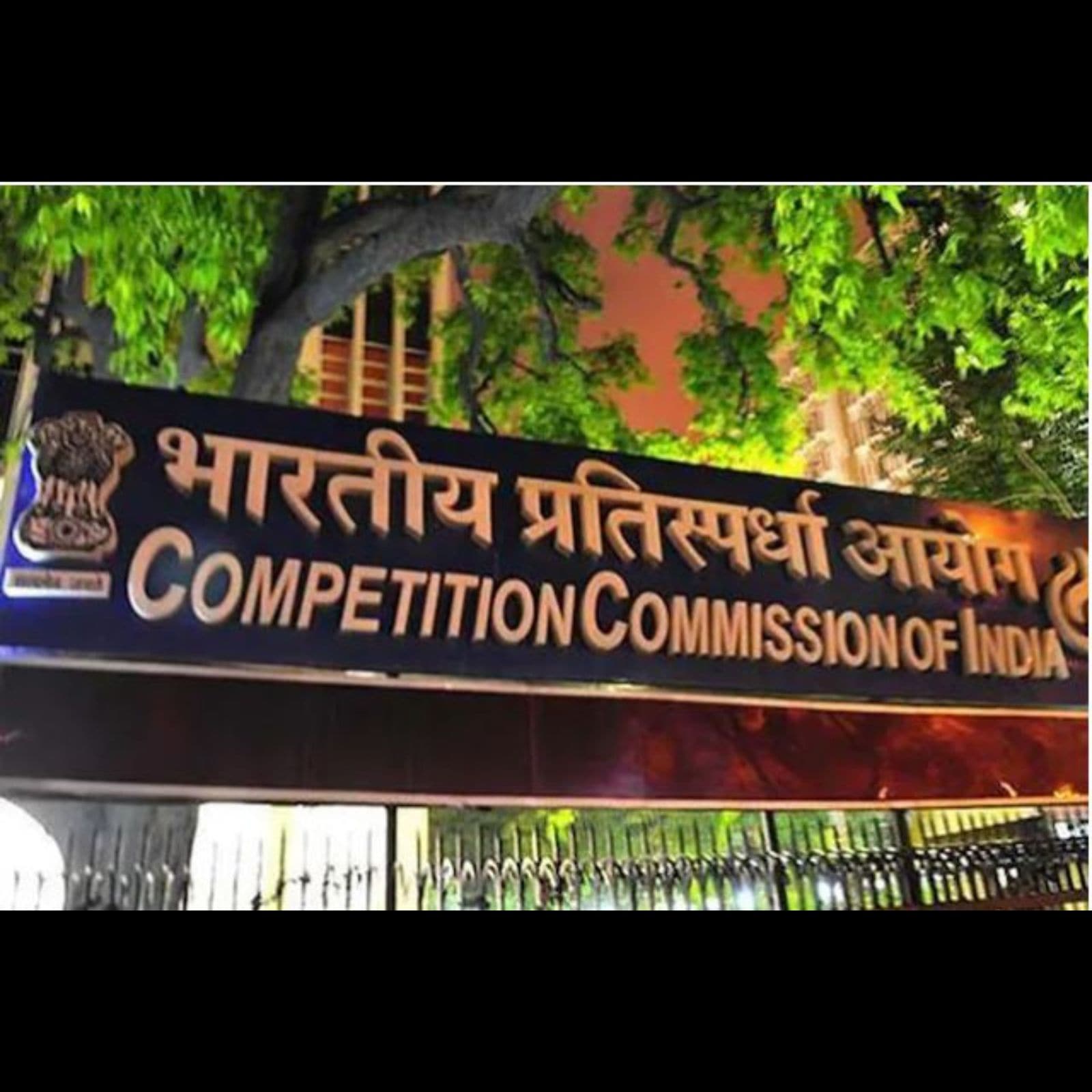Center sets up panel to prepare draft digital competition law

The Center sets up panel to prepare draft digital competition law that will examine whether the nation’s current Digital competition laws are capable of addressing the problems brought on by the digital economy and present a draft Digital Competition laws to the government within three months.
The decision was made amid increased regulatory antitrust scrutiny of large tech firms like Google, which was fined by the Competition Commission of India in two separate cases last year for allegedly abusing its market dominance in the ecosystem for Android mobile devices and the app store market. 
In addition, a Parliamentary group recommended in a study published last year that “ex-ante” laws be created to restrain the market dominance of big internet giants. Eight more members, including the Chairperson of the Competition Commission of India, will serve on the committee, which will be led by the Secretary of the Ministry of Corporate Affairs (MCA). The MCA’s joint secretary for the competition will become a member secretary of the committee.
The remaining seven committee members come from various law firms and the private sector, including Saurabh Srivastava, a co-founder of the trade association Nascomm, Pallavi Shardul Shroff of Shardul Amarchand Mangaldas, Haigreve Khaitan of Khaitan & Co., Anand Pathak of P&A Law Offices, Rahul Rai of Axiom5 Law Chamber, Aditya Bhattacharjee, a former professor at the University of Delhi.
The committee will also need to designate representatives from the Ministry of Electronics and IT (MeitY), Niti Aayog, Department of Departments for Promotion of Industry and Internal Trade, Department of Commerce, Department of Economic Affairs, and Department of Consumer Affairs (DPIIT).
According to the ruling, the committee would “examine whether current Competition Act, 2000 provisions and rules and regulations thereunder are sufficient to cope with the difficulties that have evolved from the digital economy. Additionally, it will examine the necessity for a separate piece of legislation to provide an ex-ante regulatory framework for digital markets and analyze the actions taken by “systemically significant digital intermediaries” that “limit or have the capacity to harm digital markets.”
To prevent anti-competitive behavior in digital marketplaces, the Standing Committee on Finance suggested ex-ante rules, a category of systemically significant digital intermediaries, and a new digital competition statute in December 2022. The panel recommended categorizing these digital intermediaries based on their income, market capitalization, and the number of active clients and end users.
In two separate incidents, the Competition Commission of India fined Google late last year. 1,300 crore, was levied on the business for allegedly “abusing its market-dominating position” in several fields of the domestic Android mobile device ecosystem.
The government will watch out for excessive regulation of digital competition
To avoid over-regulating a rapidly expanding sector of the economy, the ministry of corporate affairs will consult other ministries on the stringency of emerging regulations on the digital economy before giving a final shape to a proposed Digital Competition Bill, according to a person familiar with government discussions.
The goal is to determine whether adding yet another layer of legislation would burden businesses excessively given the plethora of legislative and regulatory changes already underway, including the Competition Amendment Bill, the Digital Personal Data Protection Bill, the Indian Telecommunications Bill, various rules on e-commerce, and online gaming.
Chief Executive Officer of Alphabet Inc. Sundar Pichai and Google, said to Indian lawmakers last month that technology that affects people all around the world needs appropriate regulation while also underlining the need for certainty in the legal framework
New revisions to the Competition Law to regulate digital marketplaces
Technological innovation and the narratives it creates are crucial to how businesses serve their clients or consumers while still abiding by legal constraints in a globally competitive economy. This implies striking a fine balance between implementing sound business procedures and looking out for important stakeholders like customers and regulators. The Competition Act of 2002 is sometimes referred to as the “de facto consumer protection law” since it forbids anti-competitive actions that harm both incumbent rivals and consumers.
This mindset is now firmly entrenched in the digital ecosystem, where the growth of novel business models has increased the interaction between these firms and customers, which unavoidably has implications for competition law. Customers interact with these service providers frequently in a variety of ways, including ordering food from online delivery services like Zomato or Swiggy, paying bills using Paytm, PhonePe, or Google Pay, using digital taxi aggregators like Uber and Ola, and conducting Business to Consumer (B2C) transactions on websites like Amazon and Flipkart, among
While the aforementioned cutting-edge business models are evidence of “dynamic competition,” which can be traced back to the eminent economist Joseph A. Schumpeter, there is also an emerging trend of digital platforms favoring their services by engaging in deep discounting practices, among others, and becoming repositories of consumer and business data, thereby allowing them to exploit the data in an anti-competitive manner.
The Report of the Parliamentary Standing Committee (PSC) on Finance on “Anti-Competitive Practices by Big Tech Companies” shows potential for bringing about a paradigm shift in the regulation of digital markets in this emerging techno-legal paradigm.
Ten anti-competitive activities that have become commonplace in the digital economy are highlighted in the PSC Report. Such practices, however, should be understood in the context of important characteristics of the digital ecosystem, such as network effects (more users on the platform based on the utility of the same) and the ability to scale quickly, in addition to diminishing marginal costs proportionate to the growth of the business, which helps tip the market in the favor of chosen companies in the digital ecosystem.
This, in turn, might result in entry barriers that would drive creative start-ups out of the market, allow larger companies to buy up smaller competitors, or allow businesses to enter new markets by taking advantage of advantages in existing ones. In turn, this might lead to the creation of entry hurdles, the exclusion of creative start-ups from the market, the acquisition of possible smaller rivals, or the use of competitive advantage in one market to join another. As a result, such markets are appropriately referred to as “winner-takes-all markets” in the PSC Report.
The PSC Report emphasizes several anti-competitive actions in further detail. According to the PSC Report, “anti-steering measures” hinder users of app stores from leaving the platform and utilizing other payment programs, thereby lessening competition in the markets for digital payments.
According to market capitalization, revenues, active businesses, and end users should be the basis for such classification. In the interest of transparency, the PSC Report has recommended that a legal definition of SIDI be adopted. Following such designation, SIDI must submit to CCI a detailed report on the steps taken to comply with the requirements in addition to posting a non-confidential version of the report on their website. The PSC Report suggests banning anti-steering clauses and bundling to promote a healthy level of market competition.
In a similar vein, the PSC Report criticizes the practice of “self-preferencing,” in which digital platforms not only operate as a venue for third-party enterprises but also as a listing for various apps from their parent company, with the latter receiving higher precedence. Therefore, the platform neutrality idea is promoted. The act of “bundling and tying” has been stressed, which is the third point. As one example, the PSC Report discusses how online food delivery applications put requirements on eateries to use their delivery services, so restricting the options available to customers.
The PSC Report has consequently suggested ex-ante regulation (enforcing laws by enforcing a previous code of behavior) as opposed to the current system of ex-post enforcement based on the aforementioned analysis (enforcing laws after the occurrence of the conduct). Ex-post regulation is used in the Indian competition law system currently for anti-competitive agreements and abuses of dominance, whereas ex-ante regulation is used for mergers and acquisitions. The House Panel’s suggestions will go a long way toward bringing about a paradigm shift in how competition is regulated in digital marketplaces.
edited and proofread by nikita sharma




